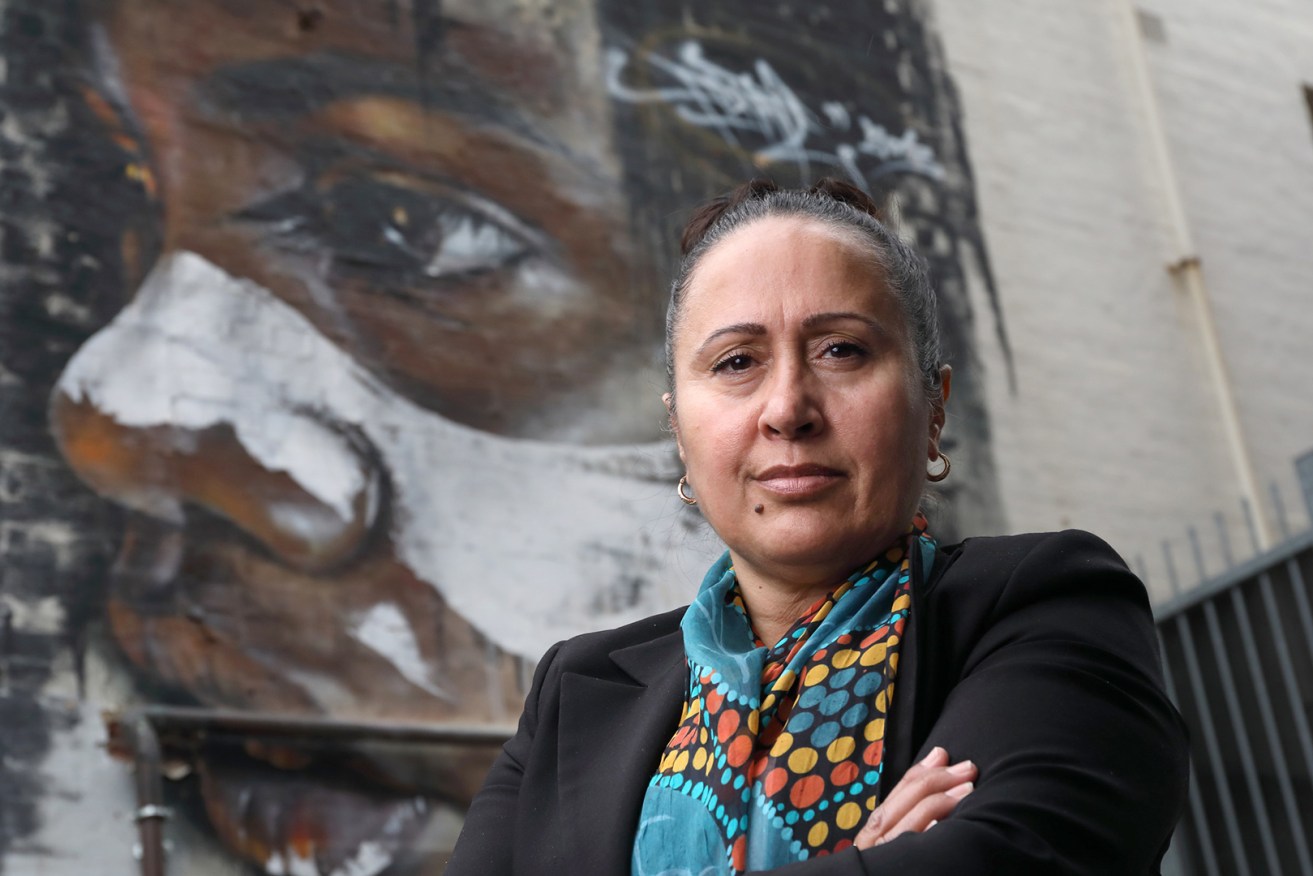Aboriginal Children’s Commissioner finally set to be granted powers
More than two years after her appointment, the State Government has finally moved to allow South Australia’s inaugural Commissioner for Aboriginal Children and Young People to investigate “pressing systemic issues” facing Indigenous youth.

SA Commissioner for Aboriginal Children and Young People April Lawrie. Photo: Tony Lewis/InDaily
Education Minister John Gardner yesterday introduced legislation to parliament calling for Commissioner April Lawrie to be granted the same powers as her counterpart, Commissioner for Children and Young People Helen Connolly.
Under the proposed legislation, Lawrie would be able to conduct independent inquiries and formal investigations into issues brought to her office’s attention.
She would also have the authority to advise and make recommendations to government ministers, state authorities and other non-government bodies on matters relating to Aboriginal children, as well as to ensure that the state is held accountable to international obligations on the rights of First Nations children.
Premier and Aboriginal Affairs Minister Steven Marshall appointed Lawrie, a former government bureaucrat who heralds from the Mirning and Kokatha peoples from the Far West Coast, in October 2018, following a request made by Aboriginal organisations.
At the time, the State Government fast-tracked her appointment via a clause in the Constitution Act, meaning she was unable to conduct inquiries or formal investigations.
Lawrie has previously told InDaily that there were several “pressing systemic issues” requiring independent scrutiny, including the rate at which the Child Protection Department removes Aboriginal newborns from their mothers at birthing hospitals.
Latest figures provided by the Department to InDaily shows about one third of newborns who are removed from the care of their parents within one month are Aboriginal.
Lawrie also wants to investigate the Department’s adherence to the Aboriginal child placement principle, which stipulates that authorities must first consider placing an Indigenous child in care within their family or cultural group, before placing them with a non-Aboriginal carer.
Despite the principle being enshrined in law, only 31.5 per cent of Aboriginal children in care are placed with Aboriginal relatives or kin.
Gardner told Parliament yesterday that Aboriginal children were “disproportionately represented within the state’s most disadvantaged and vulnerable children and youth”.
He said they were more likely than non-Aboriginal children to not attend school and generally had poorer health.
“As a Government, as a community, as a state, we must do more to improve the outcomes for Aboriginal children and young people,” Gardner said.
“The Commissioner for Aboriginal Children and Young People will provide a voice for Aboriginal children and young people in this state to have greater agency in the making of decisions that affect their lives.”
It comes after national Aboriginal child advocacy group Family Matters last month released a scathing assessment of South Australia’s child protection data.
She now has the capacity to really hold the Government to account
According to its 2020 report, despite South Australian Aboriginal children representing only six per cent of the state’s total child population, 1363 are not living at home, compared to 2603 non-Aboriginal children.
Reunification of Aboriginal children with their families dropped to 40 per cent during 2019 and South Australia had amongst the lowest rate of investment in Aboriginal community-controlled services that support families.
Family Matters SA deputy chair Rob Martin said the group was in “complete agreement” with the move to legislate Lawrie’s role.
“It’s been a long time coming and it certainly marks a huge step forward for South Australia,” he said.
“Ideally her role should have been legislated prior to her commencement, but I am of the opinion that it’s better now than never.
“The vast over-representation of Aboriginal and Torres Strait Islander children in the child protection system and the means by which Aboriginal families are involved in the decisions to remove children are an absolute priority for the Commissioner and her office, and with these new powers to investigate she now has the capacity to really hold the Government to account.”
InDaily contacted Lawrie for comment.
Lawrie’s term ends in December next year. The Government’s Bill specifies that her replacement must be an Aboriginal person.
Opposition Aboriginal Affairs spokesperson Kyam Maher said Labor was yet to consider the Government’s Bill.
Meanwhile, in a move described as “historic” by Marshall, South Australia’s Aboriginal Engagement Commissioner Dr Roger Thomas will this afternoon give his first address to the House of Assembly as part of a new “Voice to Parliament” initiative.
Thomas is expected to present a report on work underway to reform how Aboriginal communities engage with the Government.
Part of that reform involves giving Aboriginal people the power to elect members to the state’s Aboriginal Advisory Council – the only group that meets twice yearly with Cabinet.
Marshall said Thomas’ report, which is yet to be made public, provides “frank commentary on a number of issues of concern, as well as discussion about policies and programs to improve the lives of Aboriginal South Australians”.




